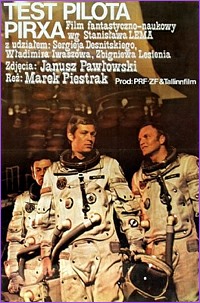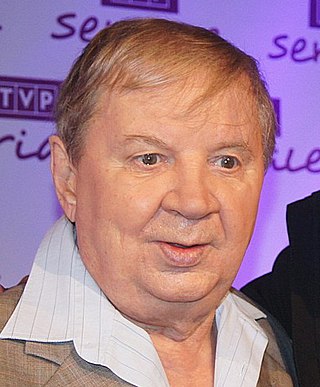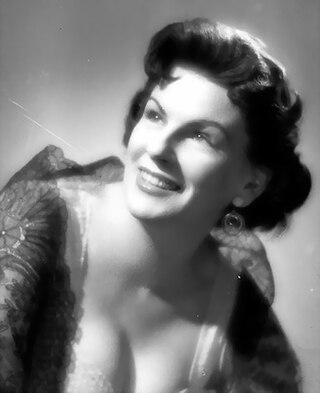
Jerzy Andrzejewski was a prolific Polish writer. His works confront controversial moral issues such as betrayal, the Jews and Auschwitz in the wartime. His novels, Ashes and Diamonds, and Holy Week, have been made into film adaptations by the Oscar-winning Polish director Andrzej Wajda. Holy Week and Ashes and Diamonds have both been translated into English. His novel The Gates of Paradise was translated into English by James Kirkup and published by Panther Books with the anglicised spelling "George Andrzeyevski".

Józef Adam Zygmunt Cyrankiewicz was a Polish Socialist (PPS) and after 1948 Communist politician. He served as premier of the Polish People's Republic between 1947 and 1952, and again for 16 years between 1954 and 1970. He also served as Chairman of the Polish Council of State from 1970 to 1972.
Polish Film School refers to an informal group of Polish film directors and screenplay writers active between 1956 and approximately 1963. Among the most prominent representatives of the school are Andrzej Wajda, Andrzej Munk and Jerzy Kawalerowicz.

Tadeusz Konwicki was a Polish writer and film director, as well as a member of the Polish Language Council.

Michał Rola-Żymierski was a Polish high-ranking Communist Party leader, communist military commander and NKVD secret agent. He was appointed as Marshal of Poland by Joseph Stalin, and served in this position from 1945 until his death. He supported the 1981 imposition of Martial law in Poland.

Jerzy Franciszek Kawalerowicz was a Polish film director and politician, having been a member of Polish United Workers' Party from 1954 until its dissolution in 1990 and a deputy in Polish parliament since 1985 until 1989.

Janusz Meissner was a Polish writer and journalist, and a pilot of Polish Air Force.

Leon Stanisław Niemczyk was a Polish actor.

Pharaoh is a 1966 epic Polish film directed by Jerzy Kawalerowicz and adapted from the eponymous novel by the Polish writer Bolesław Prus. In 1967, it was nominated for an Academy Award for Best Foreign Language Film. It was also entered into the 1966 Cannes Film Festival. It sold more than 7 million tickets in Poland, becoming one of the highest-grossing Polish films of all time. Pharaoh is among 21 digitally restored classic Polish films chosen for Martin Scorsese Presents: Masterpieces of Polish Cinema.

Inquest of Pilot Pirx is a joint Polish-Soviet 1979 film directed by Marek Piestrak. It is based on the short story "The Inquest" by Stanisław Lem from his 1968 short story collection Opowieści o pilocie Pirxie. It was adapted for film by Vladimir Valutsky. It is a joint production by Zespoly Filmowe, and Tallinnfilm. Some of the studio-based filming was done at the Dovzhenko Film Studios.

Being Forty is a Polish television comedy series originally broadcast in Poland between 1975 and 1978. The initial series enjoyed so much popularity that it was continued and led to the release of a feature film I'm a Butterfly, a 40-year-old's Love Affair and a New Year's Eve television program in 1975.

Roman Kłosowski was a Polish character actor and stage director.
Złota Kaczka is a Polish award presented by the monthly Film since 1956.
Events during the year 2011 in Poland.
Stanisław Jan Milski (1897–1972) was a Polish actor, director, and artist manager.

Leonard Buczkowski was a Polish film director and screenwriter. He directed 23 films between 1928 and 1966. His 1959 film The Eagle was entered into the 1st Moscow International Film Festival.
Three Stories is a 1953 Polish drama film directed by Konrad Nalecki, Ewa Petelska and Czesław Petelski. It is an anthology film, with three separate stories by different directors and casts. It was made in the style of socialist realism, at a time when this Stalinist method was at its height in Polish and Eastern European cinema.
A Matter to Settle is a 1953 Polish comedy film directed by Jan Fethke and Jan Rybkowski and starring Gizela Piotrowska, Bogdan Niewinowski and Adolf Dymsza.

Maria Koterbska was a Polish singer who was particularly popular in the 1950s and 1960s. Her biggest hits include Augustowskie noce, Brzydula i rudzielec, Karuzela, Parasolki, Serduszko puka w rytmie cza cza, Wrocławska piosenka, and Do grającej szafy grosik wrzuć.

Piotr Pytlakowski is a Polish journalist and screenwriter, from 1997 associated with the weekly "Polityka".
This page is based on this
Wikipedia article Text is available under the
CC BY-SA 4.0 license; additional terms may apply.
Images, videos and audio are available under their respective licenses.













